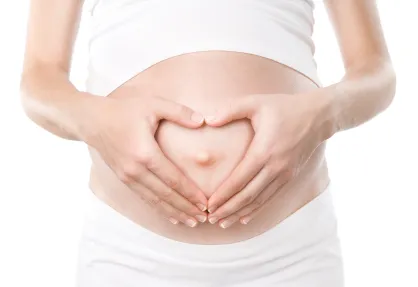Pregnancy diarrhea or diarrhea is a relatively common condition. Diarrhea at the beginning of pregnancy may be a result of pregnant women's increased susceptibility to infection. However, diarrhea before delivery often signals an imminent birth.
We can speak of diarrhea when the number of daily bowel movements reaches 3 or more and the stool is semi-liquid or liquid. When diarrhea occurs, it is important to provide proper hydration and nutrition. A pregnant woman should never underestimate such symptoms, because diarrhea can negatively affect the health of the pregnant woman and the developing baby in the womb.
Diarrhea during pregnancy
Diarrhea lasting up to 3 weeks and caused by a viral, bacterial, or parasitic infection is called acute diarrhea. If the diarrhea lasts longer than 3 weeks, it is chronic and may be caused by an allergy, celiac disease, parasitic infection, food intolerance, or irritable bowel syndrome. Regardless of the type of diarrhea, prompt medical consultation is extremely important, especially for pregnant women. Diarrhea during pregnancy can lead to food shortages and even malnutrition, posing a risk to the future mother and child.
Symptoms of pregnancy – diarrhea
Diarrhea is not a specific symptom of pregnancy, but it happens that the effect of hormones can cause vomiting and diarrhea. Constipation, which is the result of hormonalDiarrhea in the 9th month of pregnancy changes during the first stage of pregnancy, is much more common in pregnant women. However, pregnancy can be confirmed only after a pregnancy test and a visit to a gynecological office.
Diarrhea in the first trimester of pregnancy
Usually, diarrhea is a mild condition that does not require much intervention. However, if diarrhea in the first weeks of pregnancy is combined with abdominal pain or vaginal bleeding, it may be a symptom of miscarriage and immediate medical consultation is needed. Special attention should also be paid to the presence of blood, mucus or oil in the stool. Regardless of the stage of pregnancy, it may be a sign of a serious infection that requires medical intervention.
Diarrhea in the 3rd trimester of pregnancy
Diarrhea in the second and third trimesters of pregnancy may be caused by the body’s response to hormonal changes, uterine enlargement and fetal development, in addition to factors such as those of people who are not pregnant. In addition, if the diarrhea is accompanied by general weakness, fever, or abdominal pain that gradually becomes more clingy and severe, this may indicate that the placenta has become detached.
Diarrhea in the 9th month of pregnancy
Diarrhea at the end of pregnancy can be caused by increased stress due to the approaching delivery date. Diarrhea before birth can also be caused by the beginning of the birth process, the body cleans itself in this way and prepares for the birth.
Diarrhea during pregnancy – treatment
Since pregnant women are more susceptible to infections due to the weakening of the immune system, it is worthwhile to pay attention to proper nutrition and eliminate potentially harmful products during pregnancy. The basic principle for diarrhea during pregnancy is to maintain adequate hydration levels. During diarrhea, a pregnant woman loses not only large amounts of water, but also electrolytes. Systematic replenishment of their stocks is critical to minimize the risk of dehydration. A dehydrated body is much more exposed to kidney disease, acidosis or general intoxication.
Medicines for diarrhea during pregnancy
Pregnant women should not take antidiarrheal medications without first consulting a specialist.
Diarrhea during pregnancy – what to eat?
In case of diarrhea, you should eliminate from your diet all foods that are difficult to digest and contain fat. You should also avoid coffee, carbonated drinks and fruit and vegetable juices. Instead, it is advisable to eat gruel, rusks and corn chips, and over time, cooked carrots, lean meat and potatoes can be added to the diet. Drinking an infusion of berries is also a natural remedy for diarrhea.
Green diarrhea during pregnancy
The coloration of the stool depends mainly on the food consumed. Green diarrhea in pregnancy is due to the fact that the digestive tract moves too quickly, so that the bile produced during digestion has not had time to turn from greenish to brown.










